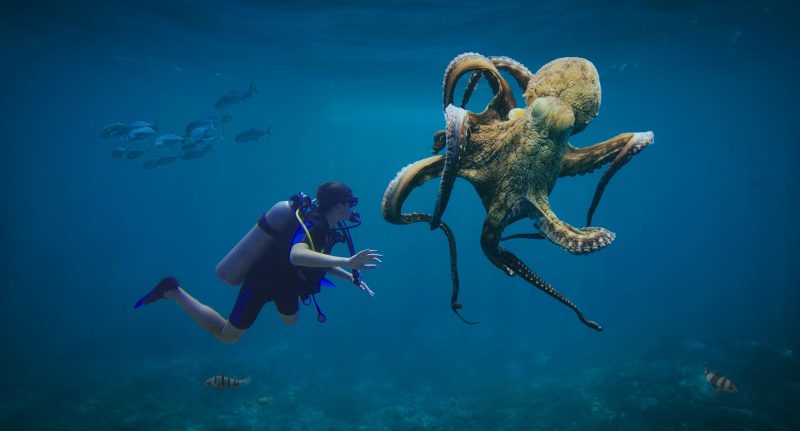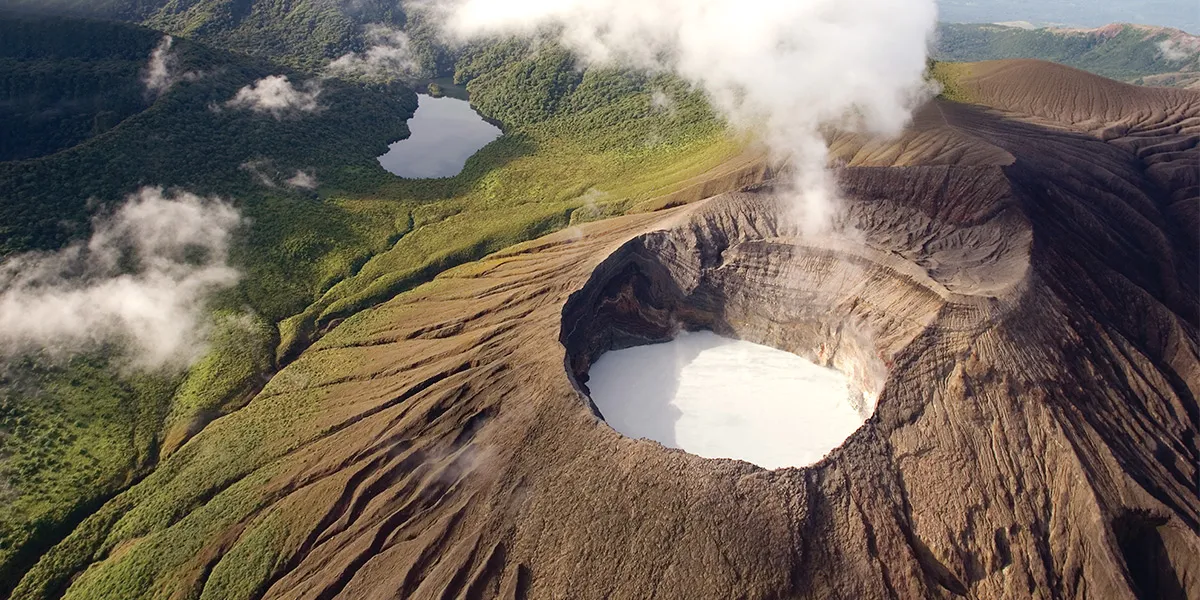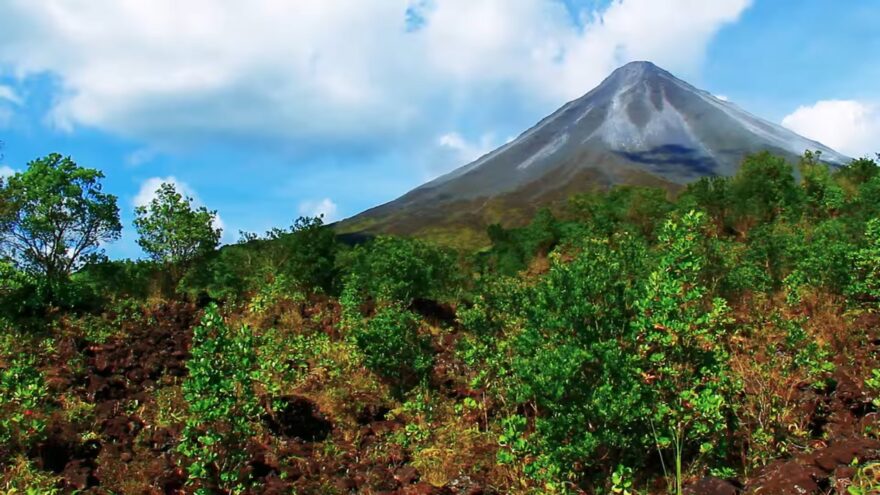A Spanish company, Nueva Pescanova, plans to open the world’s first commercial octopus farm on Gran Canaria island in 2024. But scientists warned industrial breeding of these sentient creatures may cause ethical and environmental disasters. The high mortality rate was a major concern in previous breeding efforts, but the company assured them they have optimised conditions for their well-being during breeding.
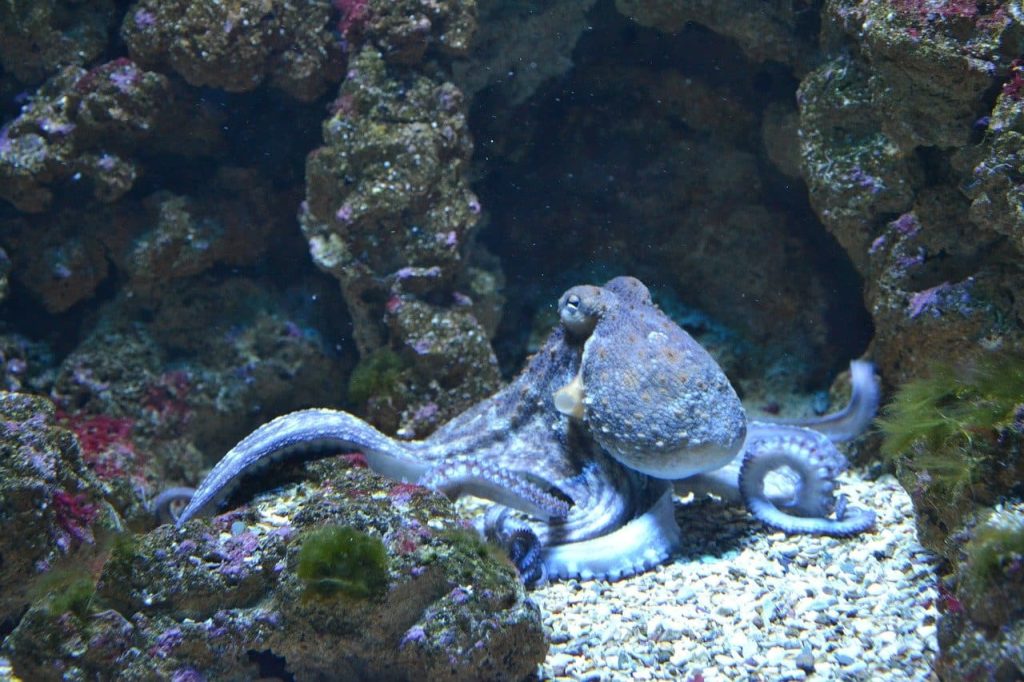
Proponents of the venture claim the breeding programs will ease pressure on overtaxed fisheries and provide local jobs. But ethicists, zoologists, and environmentalists aren’t convinced, warning there are plenty of reasons to not farm octopuses. On paper, octopus farms sound like a reasonable pitch, since many commonly eaten species can breed prolifically, grow body mass quickly, and take just a year or two to mature. However, there’s a litany of costs and problems associated with the idea of octopus aquaculture.
They’re picky eaters, especially when young, preferring to dine on live prey. Octopuses also don’t fare well in containment – they can become aggressive when penned in with one another, often to the point of self-mutilation. Besides, octopuses are notorious escape artists, finding clever ways to slip free given the smallest opportunity.
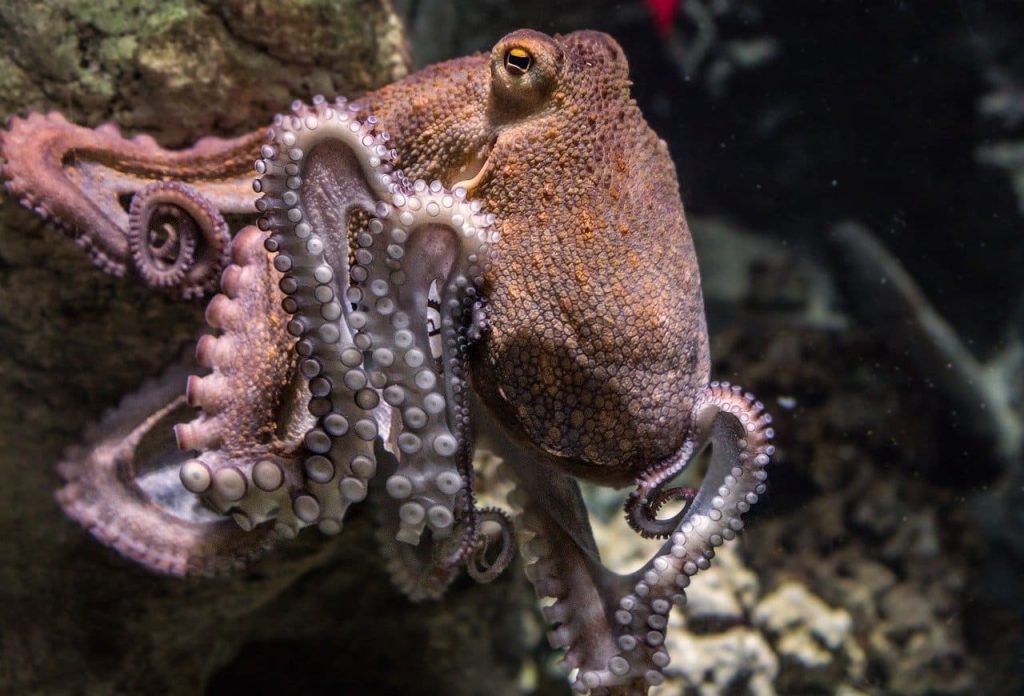
Aquaculture, in general, continues to pose serious environmental concerns. In spite of significant improvements over the past two decades, the industry is still a source of aquatic pests and diseases, pollutants, and greenhouse emissions.
Companies like Nueva Pescanova treat these obstacles as pragmatic, expecting to solve them with science, though they’re notoriously tight-lipped on just what this might eventually look like. But there’s a more philosophical challenge that may prove harder to fix. Research over the years has presented us with an impression of octopuses as fiercely intelligent animals, capable of not just solving complex problems with a nervous system completely unlike our own, but experiencing emotions such as anticipation and suffering.
It’s for these reasons that an increasing number of states around the world, including the UK, Norway, and Austria, are finally affording protections for octopuses and other cephalopods in their animal rights legislature. In Galicia, on the northwestern coast of Spain, octopus is the king of seafood dishes. Local fishers compete in a global market that is expected to see nearly 630,000 metric tons of the animal trade by 2025, up from around 380,000 tons just a couple of years ago. With its research centre based in Galicia, Nueva Pescanova hopes to cash in and provide the market with around 3,000 tons of affordable octopus meat annually by 2026, spending 65 million euros (US$73 million) to make the idea a reality.
The centre’s director, David Chavarrias, claims they’re already finding solutions to problems that make octopuses difficult to farm, such as their tendency to turn on one another in confinement.
“We have not found cannibalistic behaviour in any of our cultures,” Chavarrias told the news service Reuters. Since the largest consumers of octopus meat also happen to be largely affluent, food-secure nations, the debate isn’t one over adequate nutrition, but of culture, capitalism, and cuisine. Sustainable, profitable octopus farming may eventually become a reality, given enough time and investment: Cheap tentacles for a ready-cooked supermarket pulpo a la gallega is worth big bucks to anybody who can corner that piece of the market.
But whether it’s worth the suffering to an animal that has so little (and yet so much) in common with humans isn’t a problem we can solve with research.
Source: Science Alert

